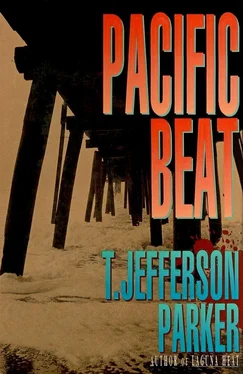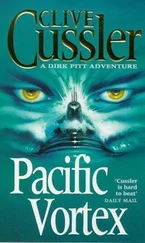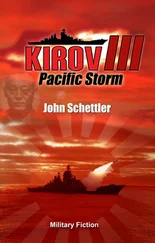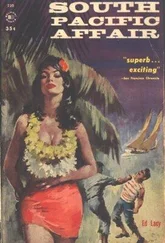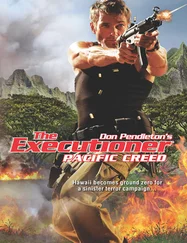“Well, what did you do?” asked Jim.
Virginia looked at him, then at Joseph, then back to Jim. “I agreed to everything, left, and told Blodgett I had put the money out on one of the light beacons at the end of the jetty, so to hand over my grandson and I’d tell him which one. He said he didn’t believe me, which is just what I thought he’d say. He took me along for the ride, which is just what I thought he’d do. Joseph was on the boat, too, of course — Blodgett guessed the cops would be all over Cantrell’s properties sooner than later. Out in the middle of the bay, there was this accident that involved a gaff and the back of Dale Blodgett’s idiot head. Later, some matches got mixed up with the fuel. Joseph and I were lucky to get overboard and swim back to my car. We ditched our life jackets and sat with Mackie Ruff in his little ghetto while the police buzzed and the Harbor Patrol put out the fire. Mackie had some blankets and rum and a fire to dry our clothes. Mackie said he was a reserve cop now. By the time it was over, we just kind of drove away. That’s the only time I’ll tell that story — I’ll never tell it again. I will answer no questions, entertain no discussion. It had to be done and I will talk about it no further. Joseph has the definitive version.”
Joseph studied his hands again, then turned his clear blue eyes to Jim. “Your mother and I were... reunited by Mr. Blodgett, down at the dock. He went to go get the money and his boat blew up. We swam out to help if we could — but we couldn’t find him.”
“You forgot something,” said Virginia, in much the same tone with which she had drilled Jim on multiplication tables when he was ten.
“Later,” he said, “we took a rental boat out of the locker and got the money off the beacon.”
Jim had to admit it was a pretty tidy package. With all the other action for Dennison to cover, the whereabouts of Virginia Weir would be far down on the list. When Marge sang to the grand jury, Braga would be the only one left standing to take the fall — or, would he?
“So Blodgett was doing the dumping all along?”
“He was proud of it. It’s been going on for years — way before he volunteered to be the one-man Toxic Waste patrol. He’d been doing ‘personal security’ work for Cantrell off and on for a decade. Cantrell was using plenty of TCE to paint all his new condos and houses. He was using Cheverton money to pay Blodgett and Braga to handle the disposal. That was just to keep PacifiCo out of the loop, in case someone like Becky or I wanted to make something of it — Cantrell could just say he handled his own waste. It was supposed to be by the book — permits and licenses, a thousand each for Dale and Braga to transport it to a Long Beach company every other month for disposal. Well, Dale and Braga just split the seven thousand that was supposed to go to the Long Beach people, and dumped the stuff ten miles out instead of transporting it to Long Beach. Everything was fine until Annie and I started finding trace. Things got bad when Duty Free threw a rod in the harbor and they either had to jettison the solvent or take it back to Cheverton. They panicked and dumped it.”
Weir tried to figure. “Who were they scared of? If Blodgett was the Toxic Waste patrol, who was left to watch him?”
“Cantrell,” said Virginia. “Annie had seen them loading drums at Cheverton, and she must have told him. Cantrell thought everything was legal. He never knew until Ann found out, then he landed on Blodgett and Braga.”
“Why did Blodgett tell you all this?”
“Because he was going to kill us after he got the money,” said Joseph. He looked down, blushing, and clasped his hands together. In a quiet voice, he added, “I could tell by the way he was moving.”
“What about Dennison?” asked Becky. “Can we sink him?”
“He didn’t know what Blodgett was up to, either. He was too busy rising to the top to worry about what all his men were doing. And of course Dale was bringing him whatever Brian could use about what we were doing politically — and in the bay. When Dale told you he’d seen Sea Urchin that night, he’d already told Dennison, too. That’s why Brian was so worried. He thought we were dumping to make a campaign issue out of it, but he couldn’t prove it. I don’t see how he can save his public face now — with one of his men confessed to murder and the other dumping toxins into the bay. By the time the press gets done with cover-up speculations and Marge Buzzard talks to the grand jury, Dennison will be finished. He knows that. I think he’ll withdraw. Congratulations, Mayor Flynn.”
Becky sighed, shook her head, and sat back.
Virginia asked about Raymond. She had already pieced most of it together herself from what Cantrell and Joseph had told her. “He listened to her phone calls, and read her mail and journal. The baby wasn’t his, and he knew it,” said Jim.
Joseph looked down at the floor. Again, the great yawning absence of Ann had visited them — Ann, the very center of all this — Ann, departed like a guest of honor summoned to a more important engagement.
“What about your... suicide?” Becky asked.
Joseph explained that Cantrell’s plan was to stage the suicide, close the case, let him disappear, and live with the fact that Ann’s killer would remain free.
Weir couldn’t figure it, until he remembered the old woman who’d spotted Joseph’s car down by the Back Bay the night she couldn’t sleep. “You knew it was Raymond, all along. You followed them down there that night. You’d been waiting around Cantrell’s to see her, the same way Raymond was waiting to get her into the patrol car.”
For a moment, Joseph’s eyes traced a pattern in the air, as if tracking an invisible fly. He looked down, pressed his fingers against his temples, then addressed his feet. “I didn’t think I could go to the police and tell them what I knew. And, well... the next day, when I read that Ann had died — I couldn’t really remember what I’d done after I left the Back Bay. I... sometimes things aren’t clear. I thought I should talk to Mr. Can... well, my father.”
And, as Jim foresaw even as Joseph told it, Cantrell had been unwilling to go to the police for the scandal his affair with Ann would cause — not to mention his fatherhood of an illegitimate child, a committed sex offender. Cantrell’s star witness was the one he couldn’t call. Weir could hardly believe, though, that Cantrell was desperate enough to kill one young man and try to pass his body off as that of Horton Goins.
“No,” said Joseph. “Dale arranged the body. He was a transient from a county morgue out in some desert town. No family, or friends. He was my size. Mr. Cantrell — I mean, my father — said that we could depend on Chief Dennison to influence the coroner’s findings. The handwriting was mine. I wrote the confession and signed it. I meant it, but not the way it was taken.”
Weir asked Joseph what was going to happen to him once he was officially dead.
“Montana,” said Joseph. “He has property there, where I could start over with a new name and be a different person. I agreed to confess to Ann — it was my father I was saving from suspicion. And the more I thought about a new life as someone else, the better it sounded. He was going to come visit often. We were going to fish and hunt and ride horses. I think he likes me.”
Jim let the statement sink in, fully realizing for the first time that this young man in front of him had come two thousand miles, only to lose the mother he had never known. The strange part was that Joseph’s expression now told him without question that he had been through things even more terrible than this.
Joseph looked at him directly. His eyes were windows to inner landscapes of immeasurable damage. Turning away, he seemed to know this.
Читать дальше
